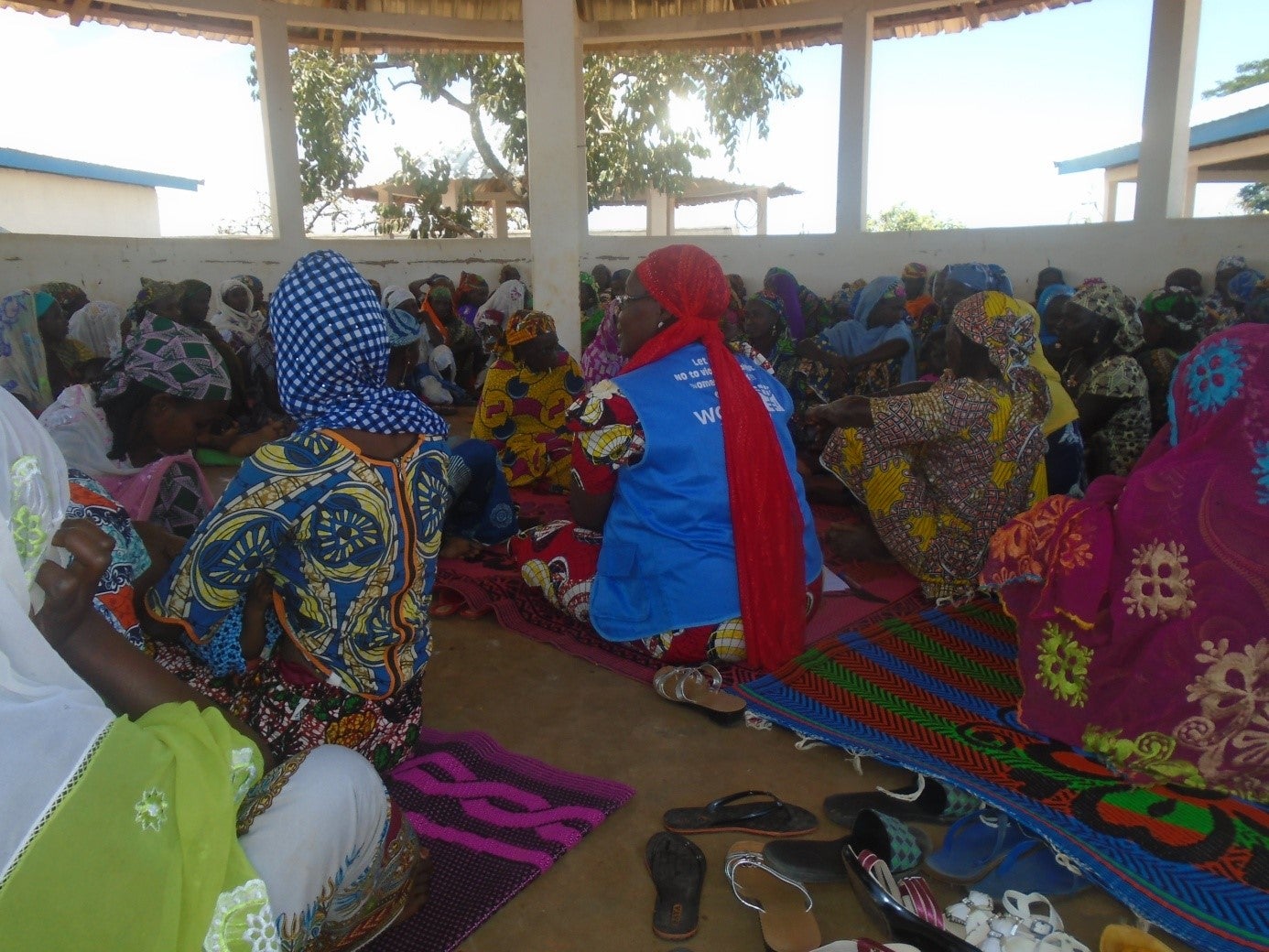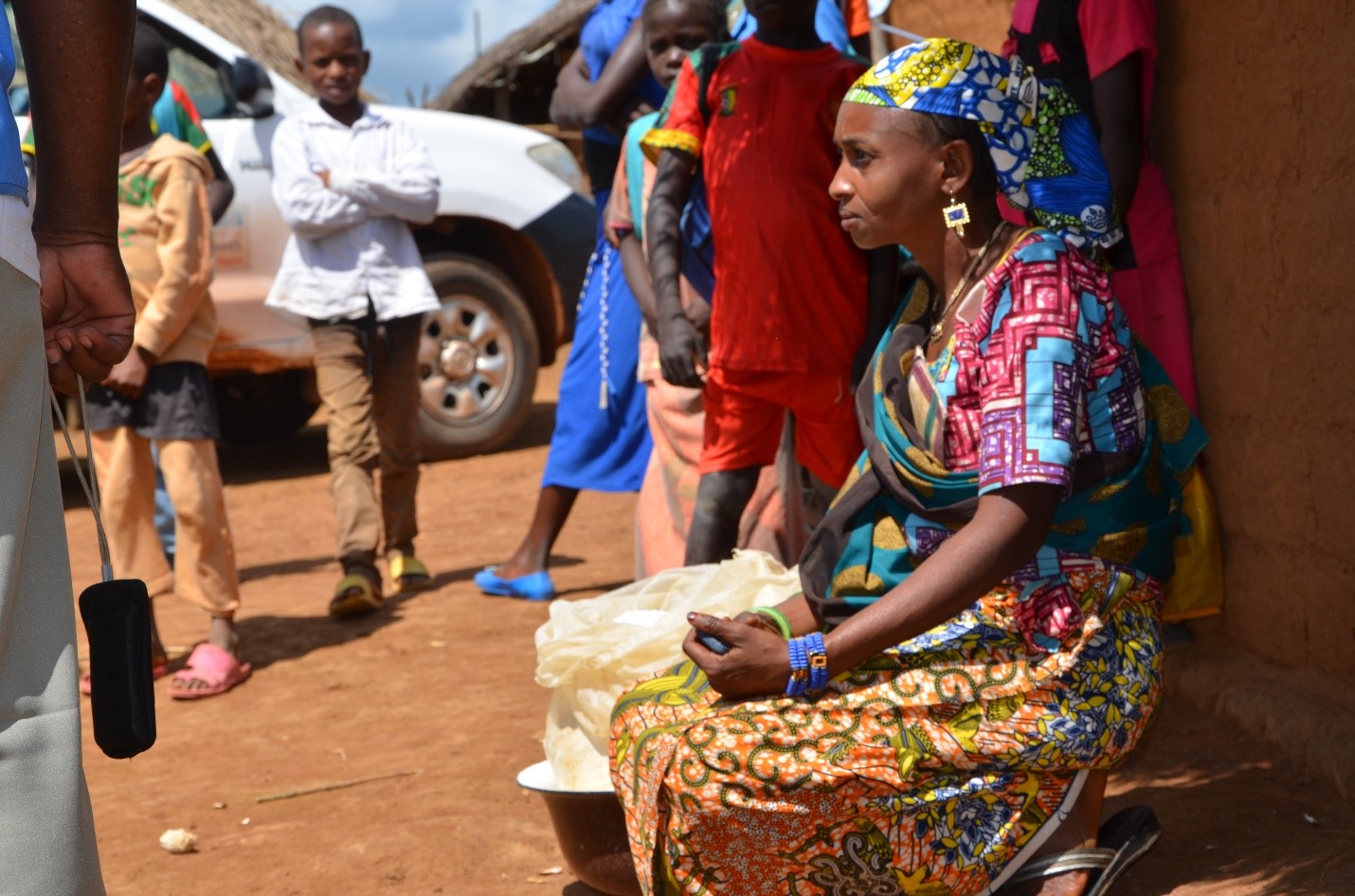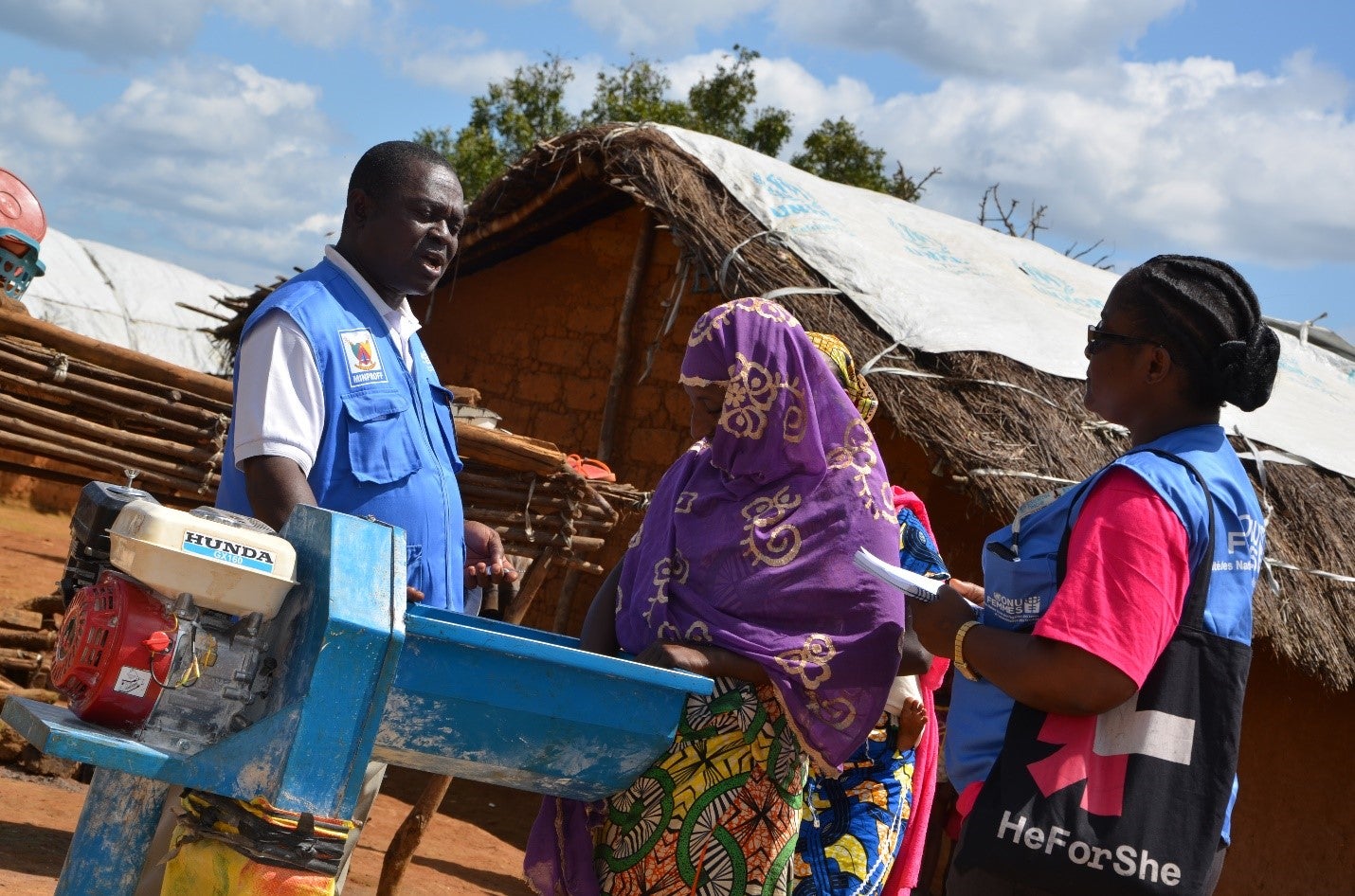Building social cohesion and empowering GBV survivors in Ngam
Date:
Over 170 vulnerable women and survivors of gender-based violence (GBV) in the Ngam refugee camp have received counselling and livelihood support from the UN Women project implemented by the Ministry of Women Empowerment and the Family (MINPROFF) which seek to promote social cohesion and empower vulnerable women within the host community and refugee camp in Ngam.

According to the GBV expert Epanga Solange, she has received over 53 cases of GBV in since July 2017 and continue to provide psychosocial support to survivors who come from both the host and refugee communities. The project seeks to promote social cohesion between host and refugee communities by incorporating women from both communities. Project beneficiaries include 70% refugee women and 30% are women from the host community. The WSCS provides a safe space to survivors of gender based violence, contributes in the prevention of violence and empowerment of women through the different services offered.
According to the traditional ruler of Ngam, Chief Saliou, the WSCS has contributed in the progressive decrease of gender based violence and improved social cohesion between men and women of Ngam. “Since the construction of the space, I no longer have to resolve violence and other social problems alone. We bring these cases to the GBV expert who provides counselling to couples and the entire community. The capacity building and sensitization seminars regularly organized here has also contributed in reducing early marriage and increase school attendance of girls in the community.”
Chief Saliou equally lauded the initiative to provide livelihood support to vulnerable women by reducing incidents of intimate partner violence and contributes in the development of the village. “Women now have savings and loans associations which helps them support their husbands to send children to school and feed their families. This has helped to reduce intimate partner violence because the women have financial independence,” chief Saliou added.
One of the beneficiaries of the project is Diallo Hawaou, a refugee from the Central African Republic. Diallo a single mother of four children who has been living in the Ngam Refugee Camp for 4 years received counselling and livelihood support from the UN Women project to help her start her business of producing cassava flour which she sells to other refugees in the camp. “I use the profits from my small business to take care of my children. I have also been able to grow and diversify my business to include groundnuts and I have opened a savings account at the WSCS where I make a weekly savings 500 FRS,” Diallo explains.

Diallo Hawaou explaining how she manages her small business to journalists during a media visit at Ngam. Photo: UNICEF Cameroon/ Beguel Salomon
In addition to helping women start up small businesses, the project also provides transformation facilities such as grinding mills to ease the labour burdens of women within the camps and the village. Five grinding mill associations with a membership of 10 women per association has already been put in place. The grinding mill is managed by one member who makes a 5000 FRS weekly savings into the accounts of the association at WSCS. These savings are periodically shared amongst the members of the association. Thereby providing the members of the association with a source of income. “I make about 1000 FRS each day. At the end of each week I save 5000 FRS into our associations account and use the proceeds to support my family and for the maintenance of the equipment,” one of the grinding mill managers said.

As part of its holistic approach to mainstreaming gender in humanitarian action, UN Women and the MINPROFF through the Ngam Women Social Cohesion Space provides a safe space to the over 5863 women of the refugees and host communities in Ngam. The space is used to provide counselling to GBV survivors, capacity building, sensitization of women and men. The livelihood and GBV experts continue to provide regular training and monitoring of survivors and beneficiaries to consolidate and capitalize the progress made in curbing gender based violence and empower women in Ngam.
As part of UN Women’s phase out strategy, all activities of the WSCS are directly implemented by MINPROFF and managed by a local management committee consisting of 10 members (6 women and 4 men including the Chief of Ngam). The WSCS also serve as a space for other humanitarian actors intervening in the site to carry out different activities.